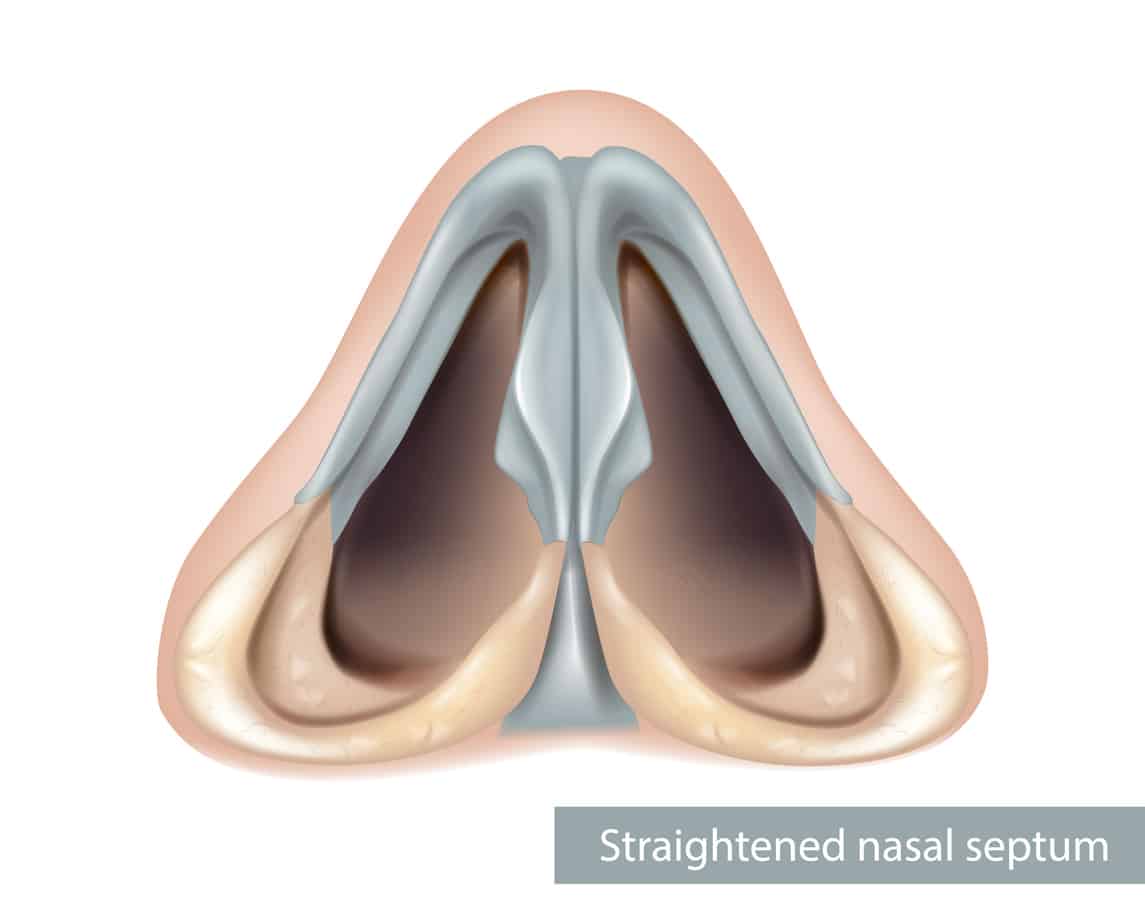The nasal valve is the narrow passageway that filters the air you breathe through your nostrils, running from the middle of your nose to the base. When the nasal valve collapses, it narrows your airway, making breathing difficult. The collapse can cause poor sleep, snoring, mouth breathing or a chronic stuffy nose. Your nose might also appear asymmetrical from the collapse.
Let’s examine why nasal valve collapses happen and how you can treat them.
What Causes a Naval Valve Collapse?

Nasal valves collapse when the tissue supporting the valve weakens. There are a few risk factors for nasal valve collapse:
- Injury. Injuries to the nose can weaken nasal valve support.
- A deviated septum. Your septum is a wall of cartilage and bone in the middle of your nose. When the septum is crooked, it causes an unequal divide in the nose. The deviation can also lead to a nasal valve collapse.
- Nose shape. People born with narrow nostrils, a wide area between nostrils or a nose that sticks far out can increase the risk of nasal valve collapse.
- Surgery. Nasal surgery like rhinoplasty, commonly called a nose job, carries a slight risk of minor to severe nasal valve collapse.
How Can I Fix Nasal Valve Collapse?
There are a few different treatment options for fixing a nasal valve collapse:
- Implants. Implants support the weak cartilage and tissue in your nose. Standard devices are titanium, butterfly-shaped implants or injectable options.
- Grafts. With grafts, your ENT specialist will remove cartilage or bone from another part of your body and attach it to the nasal valve to add support.
- Sutures. Using a technique called suture suspension, your ENT specialist will use sutures to connect your nasal valve to tissues behind your eye, lifting it upward and preventing collapse.
If an underlying structural issue like a deviated septum or enlarged turbinates caused your nasal valve collapse, your ENT may recommend septoplasty or turbinate reduction in addition to one of the above procedures.
If you’ve noticed disrupted breathing, excess snoring, stuffiness or an asymmetry in the appearance of your nose, contact ENT of Georgia North to schedule an evaluation with one of our specialists.